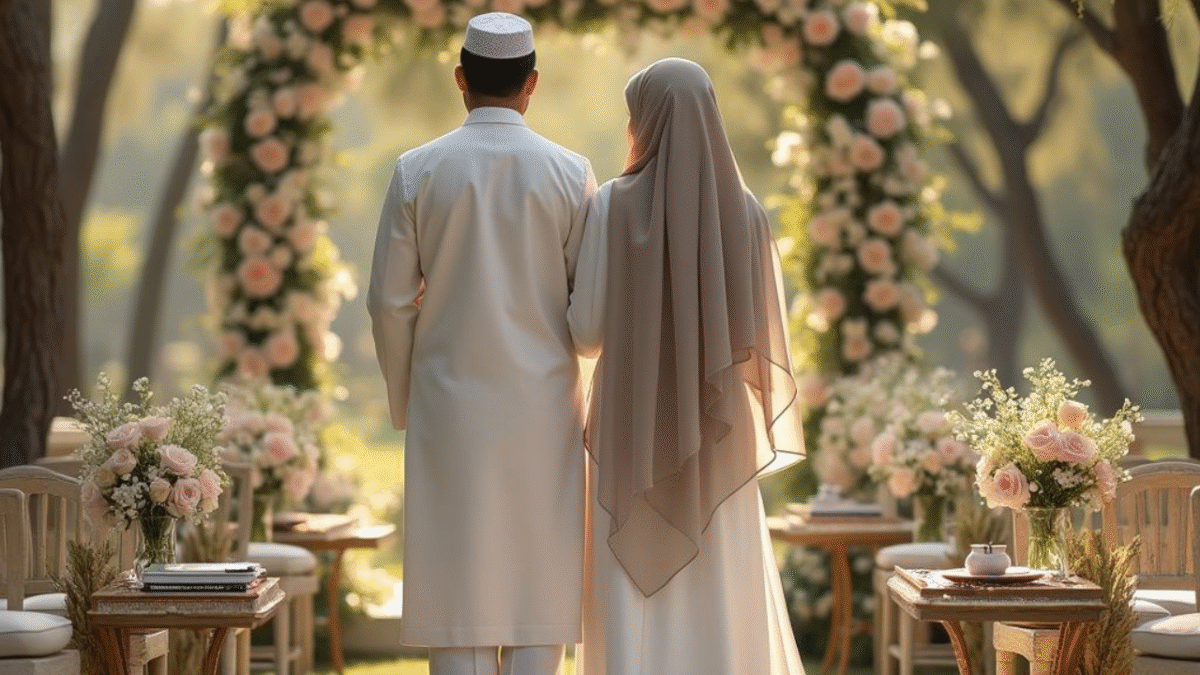Ramadan Rules for Married Couples – Maintaining Purity, Respect, and Spiritual Connection
Ramadan is the blessed month of fasting, reflection, and spiritual renewal. It is a time when Muslims seek closeness to Allah through prayer, self-control, and compassion. For married couples, Ramadan also brings a special opportunity to strengthen their bond in a way that aligns with the teachings of Islam.
While the fast demands abstinence from eating, drinking, and intimate acts during daylight hours, it does not forbid affection, kindness, or emotional closeness between spouses. Instead, Ramadan reminds believers that love, respect, and spiritual partnership must be guided by modesty and self-discipline.
This article provides a comprehensive, Islamic, and ethical guide for married couples on how to maintain purity and strengthen their relationship during Ramadan — spiritually, emotionally, and practically.
Understanding the Purpose of Fasting in Islam
Before discussing marital etiquette during Ramadan, it’s important to understand the essence of fasting. The Qur’an states:
“O you who believe! Fasting is prescribed for you as it was prescribed for those before you, that you may attain Taqwa (piety).”
(Surah Al-Baqarah 2:183)
The purpose of fasting is not merely hunger or thirst — it is to cultivate taqwa, or God-consciousness. This self-awareness shapes every action of a believer, including interactions with their spouse.
Fasting trains Muslims to control desires, purify intentions, and elevate the soul above physical needs. For married couples, it offers a spiritual discipline that deepens love through patience and mutual respect.
Read More : Kafara ka Tareeqa: 60 Rozay Ya 60 Miskeen Ko Khilana – Tafseeli Samajh
Daytime Rules for Married Couples During Ramadan
During the hours of fasting — from Fajr (dawn) to Maghrib (sunset) — Muslims abstain from food, drink, and any act that breaks or invalidates the fast. This includes avoiding physical intimacy or actions that may lead to temptation.
However, Islam is a religion of balance and understanding. Married couples are not forbidden to show affection, but they must exercise restraint and mindfulness.
What Is Permissible
- Affectionate gestures such as smiling, kind words, or helping one another in household chores.
- Emotional connection through conversation, shared prayer, or reciting Qur’an together.
- Mutual respect and patience, especially during long fasting hours when irritability can arise.
What to Avoid
- Any physical act that may arouse strong desire or lead to intimacy during the fasting period.
- Arguments or emotional conflicts — maintaining harmony is part of fasting etiquette.
- Neglecting spiritual duties due to fatigue or distraction.
Fasting is a sacred trust between a believer and Allah. Upholding discipline during the day ensures the fast remains valid and spiritually meaningful.
Nighttime Guidance – Nurturing Love Within Islamic Limits
When the sun sets and the fast is broken, normal marital life resumes within the framework of Islamic ethics. Allah, in His mercy, allows lawful enjoyment between spouses after Iftar until Fajr.
The Qur’an beautifully expresses this:
“It has been made lawful for you to go in unto your wives during the nights of fasting. They are a garment for you and you are a garment for them.”
(Surah Al-Baqarah 2:187)
This verse shows Islam’s balanced view — fasting disciplines the body by day and honors the sanctity of marriage by night.
The Spirit of Togetherness
Evenings in Ramadan are not just about physical nourishment; they are a time for spiritual renewal as a couple. Sharing Iftar, performing Taraweeh, or reciting Qur’an together builds unity and faith.
Practicing Modesty and Gratitude
Spouses should remember that even permitted actions are best done with modesty, gratitude, and cleanliness. Observing ghusl (ritual purification), praying together, and sleeping early for Suhoor strengthen both the body and the soul.
Building Spiritual Connection During Ramadan
Fasting purifies the soul and softens the heart. For married couples, it offers a chance to support each other in acts of worship and self-improvement.
Praying Together
Couples who pray together build not only spiritual closeness but emotional harmony. Performing Taraweeh, Tahajjud, or simply making dua together strengthens the bond and attracts divine blessings.
Sharing Qur’anic Reflection
Reading and discussing verses of the Qur’an as a couple encourages understanding and compassion. Reflecting on stories of patience and faith — such as those of Prophet Ibrahim (A.S.) or Prophet Yusuf (A.S.) — provides lessons for marital endurance and trust.
Encouraging Each Other in Good Deeds
Acts like giving charity, feeding the needy, and volunteering together multiply rewards. The Prophet ﷺ said:
“The most beloved of deeds to Allah are those that are consistent, even if small.” (Sahih al-Bukhari)
Encouraging one another in consistent acts of kindness keeps the relationship spiritually rich and balanced.
Emotional Discipline and Patience
Ramadan is a test of patience. Fasting can sometimes bring irritability due to hunger or exhaustion. Couples should recognize these emotions and respond with calmness.
Avoiding Arguments
The Prophet ﷺ advised that if someone provokes you while fasting, say, “I am fasting.” This principle applies within the home as well. Responding with gentleness avoids unnecessary tension and preserves the fast’s reward.
Supporting Each Other
If one partner feels weak, the other should offer comfort. Preparing Iftar, managing household chores, or sharing encouraging words creates a peaceful home — the essence of Islamic family life.
Communicating with Wisdom
Effective communication during Ramadan prevents misunderstandings. A kind tone, empathy, and forgiveness go a long way in maintaining harmony.
Acts That Break or Diminish the Spirit of Fasting
While married couples must avoid prohibited actions during fasting hours, they should also be cautious of behaviors that reduce the spiritual value of the fast.
Common Mistakes
- Wasting time on entertainment or idle talk.
- Neglecting Qur’an recitation and supplication.
- Harboring anger or resentment towards one another.
- Failing to perform Taraweeh or nightly prayers due to laziness.
True fasting extends beyond hunger; it’s a holistic act of worship that guards the heart, tongue, and eyes.
Practical Tips for Married Couples During Ramadan
Share Responsibilities
Plan household tasks together so neither partner feels burdened. A balanced routine helps both focus on worship and rest.
Prepare Spiritually
Before Ramadan begins, discuss spiritual goals. Aim to complete the Qur’an, give charity, or attend religious gatherings together.
Schedule Quality Time
Use Iftar and Suhoor as moments to reconnect — expressing gratitude and discussing faith.
Keep Intentions Pure
Even when showing affection, remember the goal is to seek Allah’s pleasure. Modesty and mutual respect keep love halal and blessed.
The Role of Forgiveness and Mercy
Forgiveness is a central theme of Ramadan. Couples should embody mercy, overlooking minor faults and focusing on self-improvement.
Seeking Forgiveness Together
The Prophet ﷺ said:
“When a husband and wife wake up during the night and pray together, Allah writes them among those who remember Him often.” (Abu Dawood)
Making dua for each other’s forgiveness strengthens spiritual intimacy and invites barakah (blessing) into the relationship.
Ending Conflicts Gracefully
If disagreements arise, Ramadan is the best time to reconcile. A simple “I forgive you for Allah’s sake” can transform the heart and bring peace.
Post-Ramadan Reflections for Married Life
The lessons of Ramadan should extend beyond the month itself. Self-control, compassion, and humility are lifelong values.
Continue Worship Together
After Eid, keep the habit of praying together and supporting each other’s faith journey. Observe voluntary fasts like Shawwal to continue spiritual growth.
Build a Spiritually Centered Marriage
A home built on prayer, gratitude, and respect remains strong through every challenge. Couples who maintain the discipline learned in Ramadan will find harmony in all seasons of life.
Conclusion
Ramadan is not only a test of willpower — it’s a journey toward inner peace and divine connection. For married couples, it is a time to renew love through patience, purity, and partnership.
By respecting the sanctity of the fast, avoiding actions that distract from worship, and supporting each other in devotion, couples fulfill both their worldly and spiritual duties.
Let this Ramadan be a season of forgiveness, faith, and unity — a reminder that love guided by Islam is not only permissible but blessed.
quraan.pk (Taj Company) encourages every couple to make this Ramadan a time of shared reflection and lasting spiritual growth.



